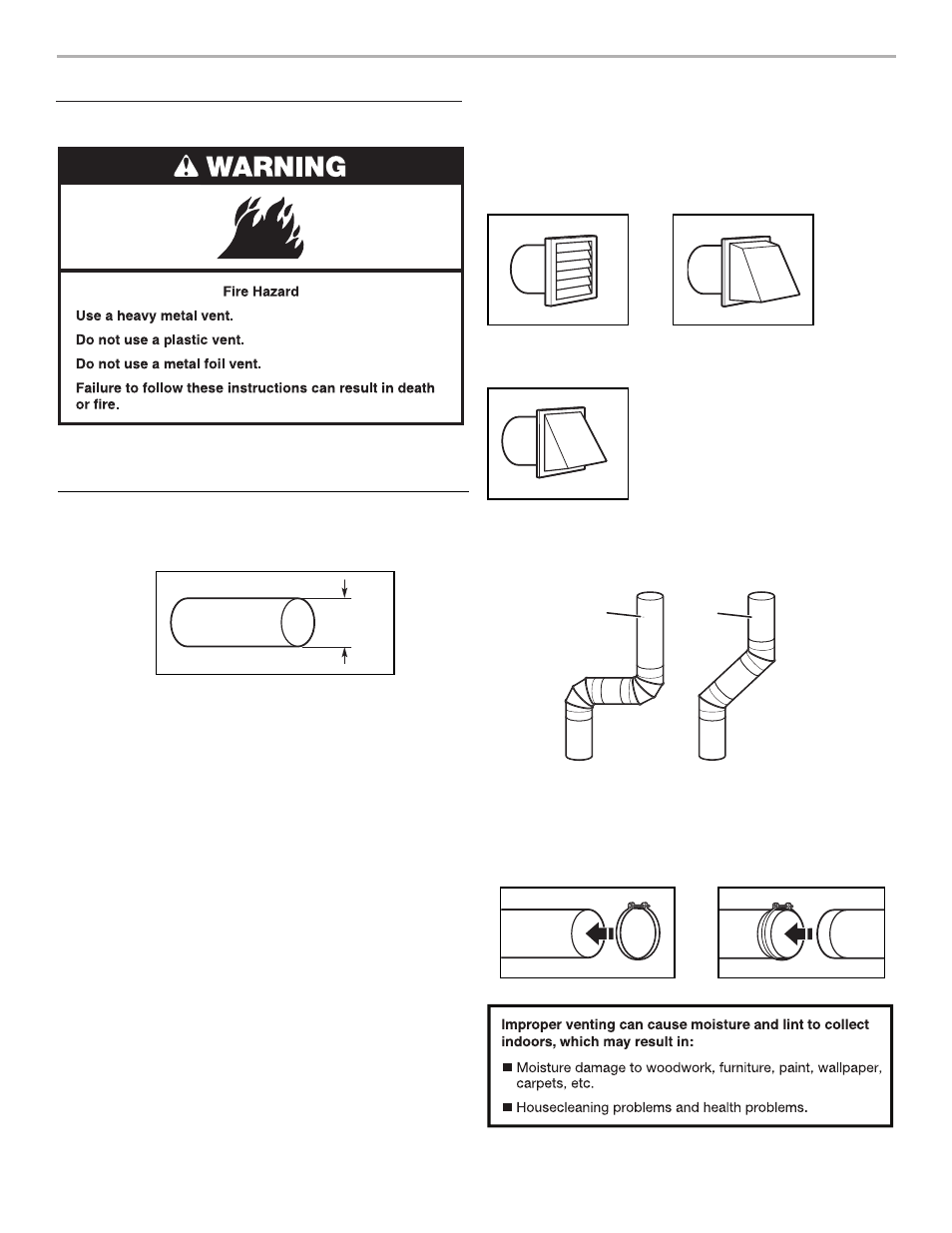Venting, Venting requirements, Warning – Maytag WED4890BQ Installation User Manual
Page 13

13
Venting Requirements
VENTING
Exhaust hoods:
■
Must be at least 12" (305 mm) from ground or any object
that may obstruct exhaust (such as flowers, rocks, bushes,
or snow).
Elbows:
■
45° elbows provide better airflow than 90° elbows.
Clamps:
■
Use clamps to seal all joints.
■
Exhaust vent must not be connected or secured with screws
or other fastening devices that extend into interior of duct
and catch lint. Do not use duct tape.
See “Venting Kits” for more information.
WARNING:
To reduce the risk of fire, this dryer MUST BE
EXHAUSTED OUTDOORS.
IMPORTANT:
Observe all governing codes and ordinances.
Dryer exhaust must not be connected into any gas vent,
chimney, wall, ceiling, attic, crawlspace, or a concealed space
of a building. Only rigid or flexible metal vent shall be used for
exhausting.
■
Only a 4" (102 mm) heavy metal exhaust vent and clamps
may be used.
■
Do not use plastic or metal foil vent.
Rigid metal vent:
■
Recommended for best drying performance and to avoid
crushing and kinking.
Flexible metal vent:
(Acceptable only if accessible to clean)
■
Must be fully extended and supported in final dryer location.
■
Remove excess to avoid sagging and kinking that may result
in reduced airflow and poor performance.
■
Do not install in enclosed walls, ceilings, or floors.
■
The total length should not exceed 7
3
/
4
ft. (2.4 m).
NOTE:
If using an existing vent system, clean lint from entire
length of the system and make sure exhaust hood is not
plugged with lint. Replace plastic or metal foil vents with rigid
metal or flexible metal vents. Review “Vent System Chart” and,
if necessary, modify existing vent system to achieve best drying
performance.
4"
(102 mm)
4" (102 mm) heavy metal exhaust vent
Recommended Styles:
Acceptable Style:
Louvered hood
Box hood
Angled hood
Good
Better